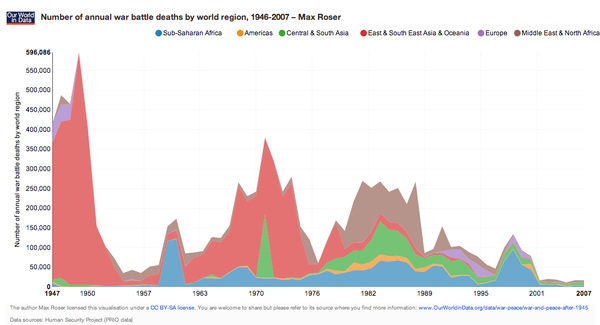
It’s been over thirteen years since terrorism made its way into the public consciousness through the 9/11 attacks on the United States. Yet, despite tightened security, increased antipathy towards Muslims, and years of war and torture, the slew of recent terrorist activity makes it seem like the West’s attempt to subdue extremist militant behaviour has only served to alter the nature of terrorist activity. Instead of methodical, large-scale attacks, over the past year we’ve seen a rise in guerilla-like, small-scale attacks using any means necessary.
Just last week: Boko Haram used a 10-year-old girl as a suicide bomber, killing up to 20 people in a crowded Nigerian market and massacred two thousand more; two brothers claiming to work for al-Qaida attacked the Parisian satirical magazine Charlie Hebdo, while a third person murdered a police woman and took several hostages and killed four in a kosher market.
According to Prime Minister Steven Harper, it’s clear that “[t]he international jihadist movement has declared war. They have declared war on anybody who does not think and act exactly as they wish they would think and act.”
While this may be true, Harper’s statement and others like it, at their base, are rooted in hypocrisy. Colonialism, in and of itself, had the exact same mission and has been largely successful. The fact that we’re seeing pushback now is evidence that centuries of anger can no longer be contained. But anti-Muslim sentiment is increasing as well. In Germany, there have been calls for the end to the “Islamization” of the West. With the rise of IS, the slew of beheadings of Western hostages and splinter attacks, such as the Martin Place siege in Australia and even Canada experiencing a shooting at Parliament Hill, from the looks of it, terrorism isn’t going anywhere.
According to Harper: “And we may not like this and wish it would go away, but it is not going to go away. And this is going to be unfortunately the reality of the world that I think we’re living in for some time to come, and we’re just going to have to face that head on and deal with it.”
If what the head of M15 warned is true, Harper seems to be right in that prediction. Word is that Al-Qaeda is planning a Paris-style terrorist atrocity against Britain—a threat of a “mass casualty attack” said Andrew Parker, Director General of the Security Service. While plots continue to be foiled, some, as we’ve seen, eventually will succeed. It may be possible to intercept messages and get a leg up on plans that require coordination. But the lone wolf, urban-style attacks we have seen have been sloppy and unprofessional (the two brothers in the Charlie Hebdo attack apparently got the address wrong at first).
Although usually less effective on a casualty basis, the fear that these attacks instill has everyone and every country looking over their shoulders worried that they’ll be next. This fear-mongering and anti-Islamic vitriol is unfortunate. Extremist movements are in no way representative of Muslims as a whole, making it unfortunate how cognitive biases emanate through our societies.
And that is not the only bias or stereotype that finds its way to us, skewing our perceptions on the status of the world. In fact, economist Max Roser, currently working at Oxford, created the website, OurWorldInData.org, to analyze long-term global trends and, by the looks of it, it has never been a better time to be alive.
“We live in a much more peaceful and inclusive world than our ancestors of the past, says Roser. “The news is very much focused on singular events. All of these trends that I’m looking at are slow changes that happen over decades, or sometimes even centuries. These developments never have a ‘now’ moment that would make them interesting for news that is following current events.”
I tend to agree. The 24-hour news cycle, combined with increased coverage of global events and access to information and community discussion, makes danger feel more prescient than it actually is. That’s not to say that the current acts of terrorism aren’t a threat, but, on a whole, peace is trending upwards.
And we don’t have to take his word on it. Just take a look at this one chart: (more can be found at the website listed above)
Number of annual war battle deaths by world region, 1946-2007 – Max Roser
While terrorism is currently a threat, we shouldn’t be more fearful now than in the past. We just have to note that even in times of relative peace, there will always be violence.

